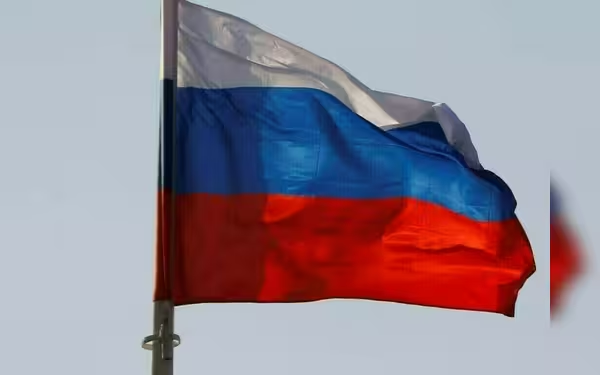Sunday, December 22, 2024 03:23 AM
Russia Accuses US of Provoking Crisis in Asia Over Taiwan
- Russia blames US for escalating Taiwan tensions.
- US military support for Taiwan raises concerns in Beijing.
- China and Russia strengthen ties against US influence.
 Image Credits: brecorder
Image Credits: brecorderRussia accuses the US of using Taiwan to provoke a crisis in Asia, highlighting escalating geopolitical tensions.
In recent developments, tensions in Asia have escalated as Russia has accused the United States of using Taiwan as a tool to provoke a crisis in the region. This statement was made by Russian Deputy Foreign Minister Andrei Rudenko, who expressed Moscow's support for China's position on Taiwan. The remarks were reported by the TASS news agency, highlighting the ongoing geopolitical struggles involving major world powers.
Rudenko emphasized that the United States is acting in violation of the "one China" principle, which it officially recognizes. He pointed out that Washington is strengthening military and political ties with Taiwan, all while claiming to maintain the "status quo." This includes increasing arms supplies to Taiwan, which has raised concerns in Beijing. Rudenko stated, "The goal of such obvious US interference in the region’s affairs is to provoke the PRC (People’s Republic of China) and generate a crisis in Asia to suit its own selfish interests." This assertion reflects the growing unease regarding U.S. involvement in Asian affairs.
China considers Taiwan to be a part of its territory, a claim that the Taiwanese government firmly rejects. Despite the lack of formal diplomatic recognition, the United States remains Taiwan's most significant international supporter and arms supplier. The U.S. State Department has not yet responded to Rudenko's comments, which were made outside of regular office hours.
In September, President Joe Biden approved a substantial military support package worth $567 million for Taiwan. This move has been met with criticism from Russia, which has reiterated its solidarity with China on various Asian issues. Moscow has condemned the U.S. for its attempts to extend its influence and for what it describes as "deliberate attempts" to escalate tensions surrounding Taiwan.
The relationship between China and Russia has grown closer in recent years, particularly after they declared a "no limits" partnership in February 2022. This declaration came shortly before Russia's full-scale invasion of Ukraine, which has led to significant global repercussions. In May of this year, both President Vladimir Putin and Chinese President Xi Jinping pledged to enter a "new era" of partnership, positioning themselves as rivals to the United States, which they accuse of being an aggressive force causing chaos worldwide.
As the situation continues to unfold, it is essential for observers to understand the implications of these geopolitical maneuvers. The U.S. involvement in Taiwan not only affects regional stability but also has the potential to reshape global alliances. The ongoing tensions serve as a reminder of the delicate balance of power in international relations and the need for diplomatic dialogue to prevent further escalation.













